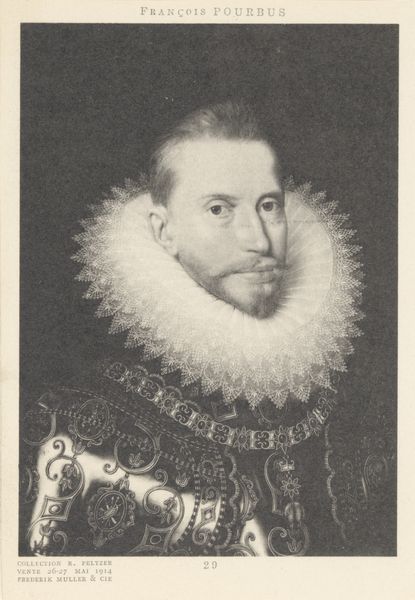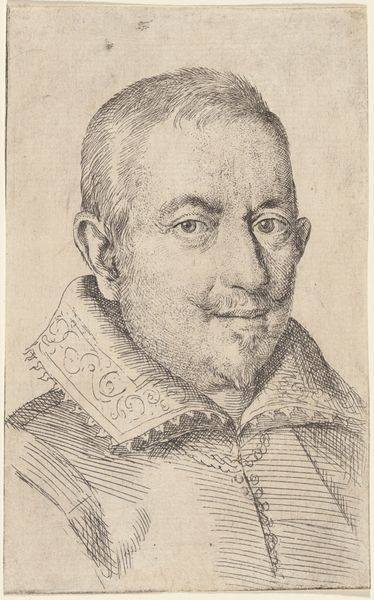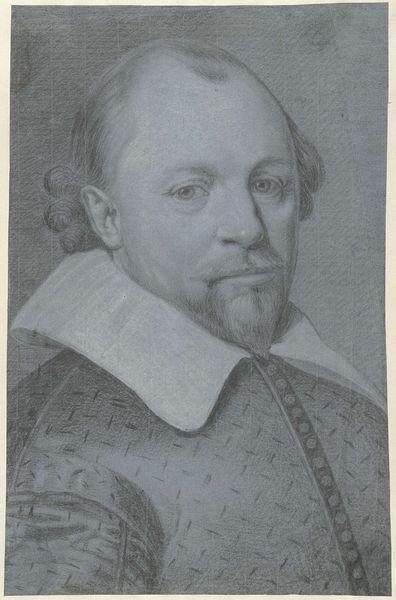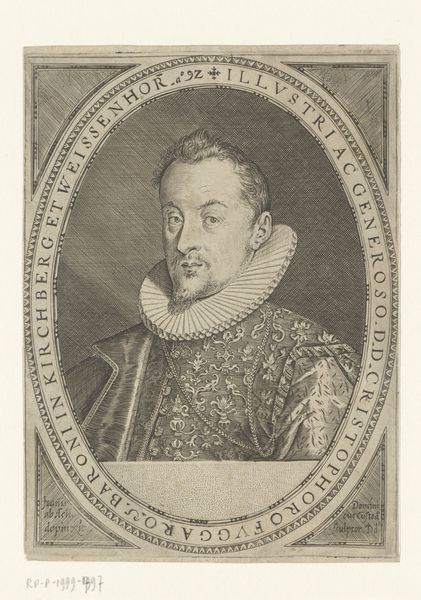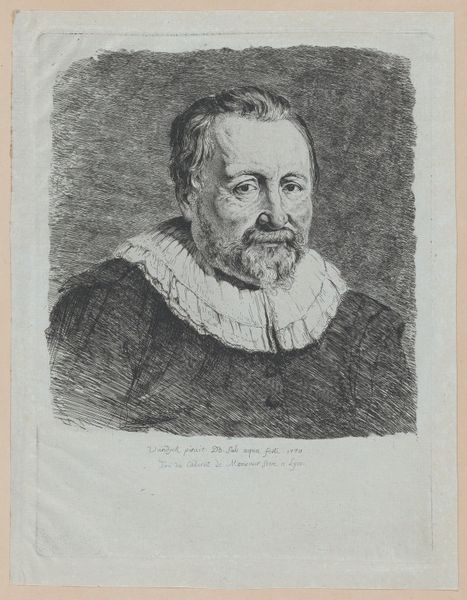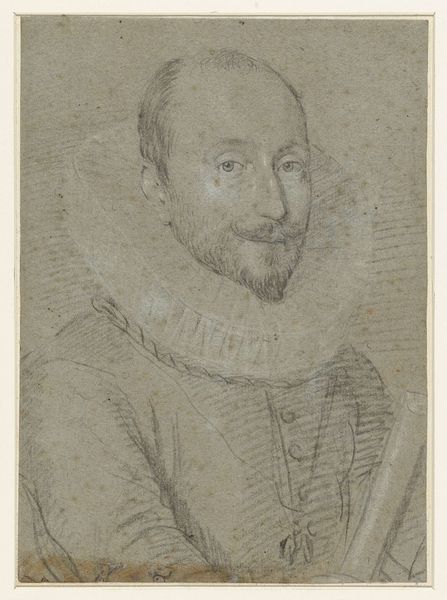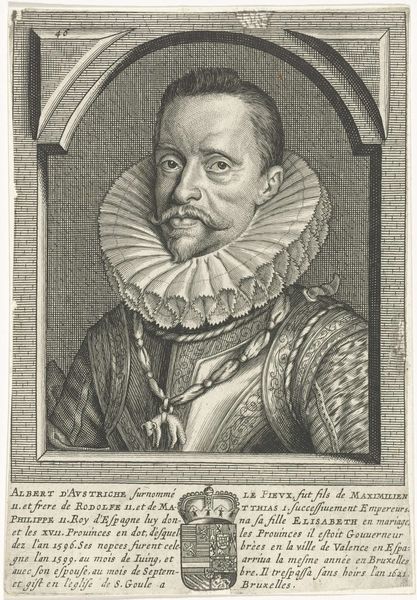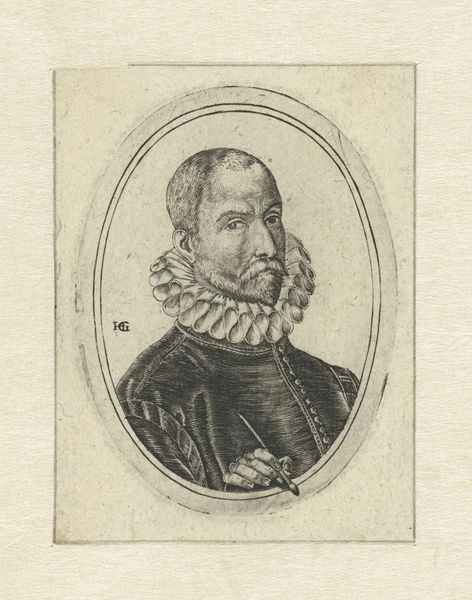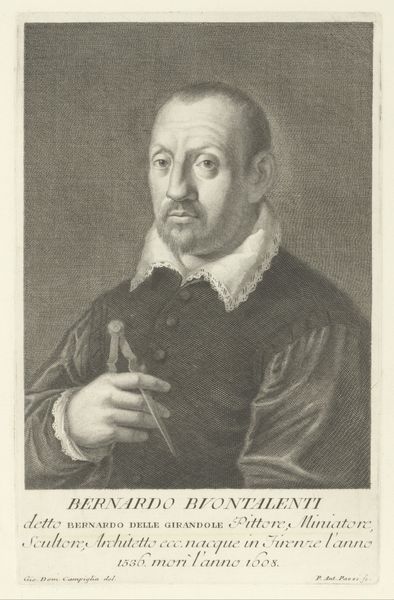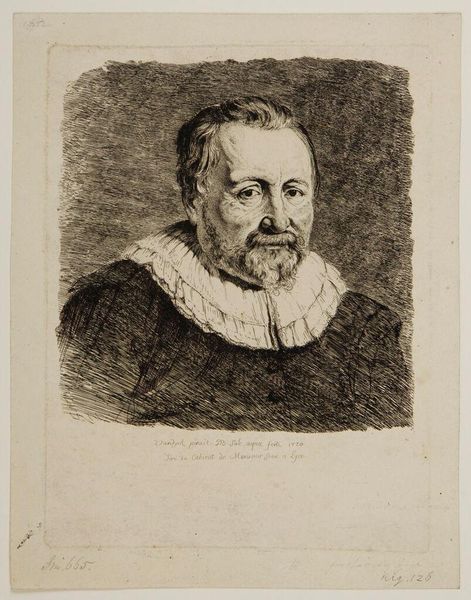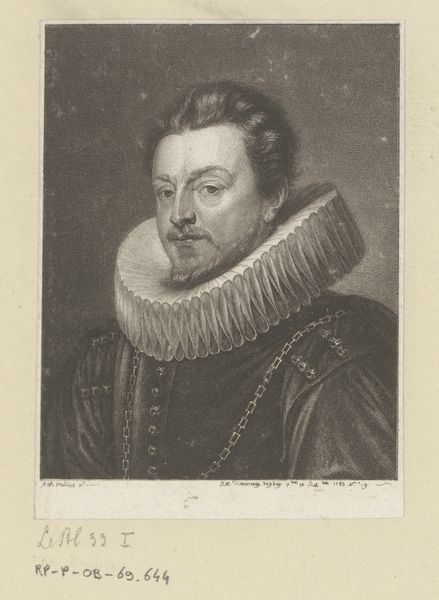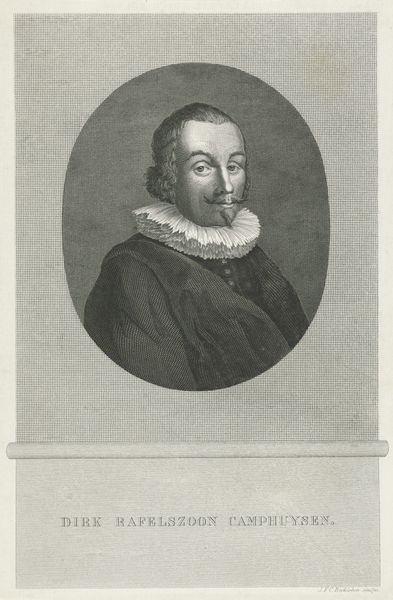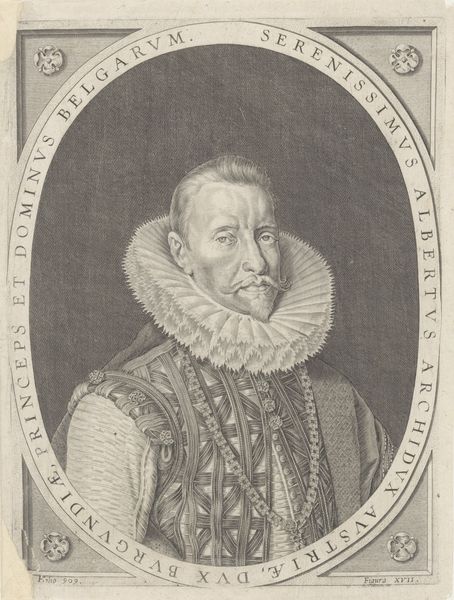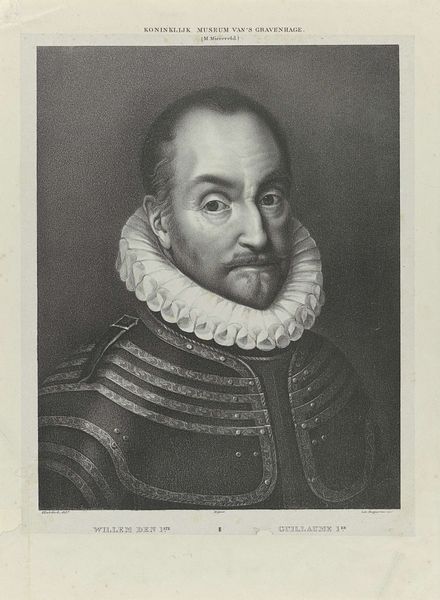
drawing, pencil
#
portrait
#
drawing
#
figuration
#
pencil drawing
#
pencil
#
portrait drawing
#
northern-renaissance
#
portrait art
Dimensions: height 490 mm, width 312 mm
Copyright: Rijks Museum: Open Domain
This portrait was drawn by Jordanus Hoorn in the late 18th or early 19th century using graphite. Graphite is a relatively humble material, but capable of great refinement. Hoorn coaxes a remarkable likeness from it. You can see the artist builds up tone with layers of hatching, creating a convincing illusion of three-dimensionality. But consider also the labor involved. Each of these tiny lines had to be carefully placed. Time, not expensive materials, was the artist’s primary investment. This raises a question: what kind of work was portraiture in this period? Was it a trade, like carpentry, or a fine art, like history painting? Probably it was somewhere in between, demanding both technical skill and a sensitivity to the sitter's social position. The lace collar alone must have taken hours to render, reflecting its value as an indication of wealth. By attending to materials and making, we can better understand this artwork, challenging the traditional distinction between fine art and craft.
Comments
No comments
Be the first to comment and join the conversation on the ultimate creative platform.
